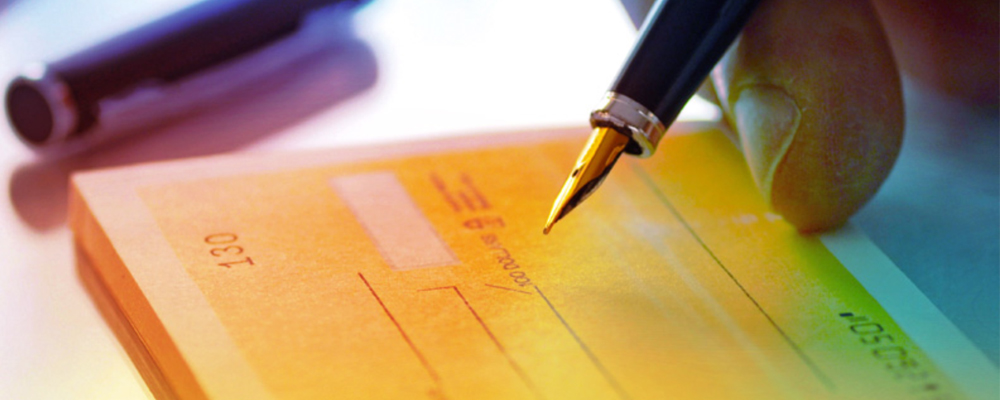According to Section 138 of the Negotiable Instruments Act of 1881, bouncing a cheque is an offence that is punished by a fine up to double the value of the check or up to two years in prison or both. A cheque is said to have bounced when the payee presents it to the bank for payment and the bank returns it unpaid with a memo of insufficient funds. When this occurs, the payee of the check may send a notice of cheque bounce to the drawer requesting payment of the cheque amount.
Essential Ingredients to Constitute the Offence of Dishonour of Cheque Under Section 138:
- A debt or any other monetary liability which is legally enforceable.
- A cheque is deposited in the bank within three months or within the validity period of the cheque, whichever is earlier.
- The money could not be drawn due to insufficient funds in the account drawer.
- Along with the receipt of information of dishonour of cheque, a notice needs to be sent to the drawer of the cheque within a period of thirty days from the date such information is received by the payee.
- The amount is not paid to the payee by the drawer within fifteen days of receiving the notice regarding insufficient funds.
Notice Before Filing Criminal Complaint:
Before bringing a lawsuit against the drawer after the bank returns the cheque, the payee must first, with the assistance of a cheque bounce attorney, submit the drawer a demand letter or legal notice within 30 days from the date the cheque was returned to the payee by the bank. The demand letter for the amount can be drafted by the payee, but it is better to consult a legal expert for the same. The letter shall demand payment of the sum in question from the drawer and warn the drawer that, if they do not pay the requisite amount, legal action may be taken against him in accordance with the Negotiable Instruments Act after 15 days. A prescribed format for the notice has not been given under the Negotiable Instrument Act, it is important to state all the material facts. Further, the receipt of the information given by the bank to the payee should be attached with the notice. Proof of delivery of such notice should be kept by the payee.
Need A Legal Advice
The internet is not a lawyer and neither are you. Talk to a real lawyer about your legal issue

Filing of Criminal Complaint After Sending Notice:
If the requisite amount is not paid by the drawer of the cheque to discharge their liability or debt, within 15 days of receiving the notice then a criminal complaint can be filed against the drawer. The limitation period of filing such a complaint is 30 days. Understanding the appropriate court to file a legal complaint with is crucial before filing the complaint. Thus, one file the case in a criminal court which has the territorial jurisdiction to undertake the cases which occur in the place where the cheque was drawn or presented, where the cheque was returned, or where demand notice was served by the payee. While filing the criminal complaint one should ensure that a copy of the material documents is attached to it. The complainant can file a criminal as well as a civil case against the drawer of the cheque. To initiate the court proceedings, the complainant has to pay the court fees while making such a complaint. The value of the cheque against which the case is being filed determines the court fees. If the cheque carried an amount within Rs. 50,000 then the required court fee is Rs. 200, if the amount is above Rs. 2,00,000 then the complaintant has to deposit Rs. 1000 as a court fee.
Following the payee’s filing of the complaint, the court will summon the accused party who owes money to the payee. Once the legal proceeding starts, the complainant presents all the evidence, including the original bounced check, the check return memo, the record of sending a demand notice to the accused, and all other pertinent documents in support of his/her case to show that the accused is required by law to pay the amount stated in the bounced check. This is done with the assistance of the complainant’s cheque bounce attorney. If the accused is found to be guilty then the court might order payment of an amount to the payee which can exceed up to twice the amount owed and also give a sentence of imprisonment up to a period of 2 years.
When a cheque bounce case is initiated against the drawer, then it can affect the civil credibility. A bank might be reluctant to provide a loan to the accused. Under Sections 417 and 420 of the Indian Penal Code, a bailable warrant can also be issued against the accused. However, for an arrest warrant to be issued, the complainant has to prove that the matter involves malicious intention required for fraud. If several cheque bounce cases have been filed against one accused then all such cases are tried in one court.





 Talk to a Lawyer
Talk to a Lawyer